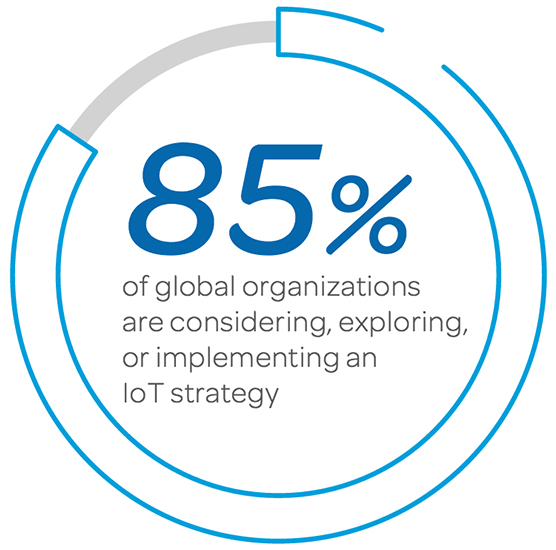Most businesses are considering or implementing IoT
The Internet of Things (IoT) is growing at an exponential rate. By 2020, some 50 billion devices will connect to the Internet and the economic value created by IoT could be worth as much as $11.1 trillion, roughly 11% of the global economy by 2025.

Yet, a single cyberattack could inflict millions of dollars in damage. The annual estimated average financial loss, per cybersecurity incident in 2014 was $2.7 million. That’s 34% higher than a year earlier.
Experts have seen a 458% increase in the number of times attackers scanned IoT devices for vulnerabilities over the past 2 years. The security of these new connected devices is essential.

In their latest report, AT&T explores IoT security problems, and how to prevent them. They uncovered the following:
- 85% of businesses are considering, exploring, or implementing IoT, but just 14% have a formal audit process to understand how many devices they have and whether these devices are secure.
- Only 17% of businesses involve their boards when considering IoT security. Board involvement is crucial. 96% of companies that did involve their boards felt confident in the security of their connected devices.
Securing and implementing IoT
Every executive should take these steps to secure their IoT ecosystem:
1. Assess your risk.
2. Secure both information and devices.
3. Align your organization and governance for IoT.
4. Define legal and regulatory issues.
“The Internet of Things is advancing the future of business, bringing new capabilities and efficiencies to companies to help them stay ahead. However, it is essential to approach IoT with security in mind in order to effectively protect your business,” said Ralph de la Vega, vice chairman of AT&T Inc. and CEO of Business Solutions & International.
For more practical context, check out the IoT security guidelines for providers, vendors, and network operators as well as the Security guidance for the Internet of Things.